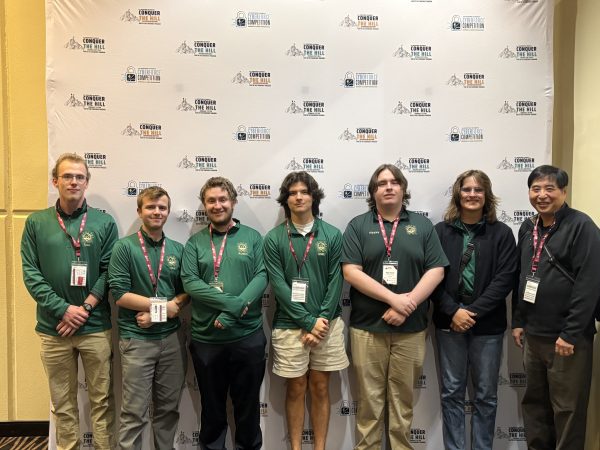Impressive Finish by 49th Security Division

The University of North Carolina at Charlotte’s 49th Security Division Team achieved an impressive 19th place finish out of 100 teams in the prestigious U.S. Department of Energy (DOE) CyberForce Competition, a nationwide challenge that tests students’ cybersecurity skills in defending critical infrastructure from simulated cyberattacks, held in Tinley Park, Illinois on November 15, 2025.
The competition brought together teams from universities and national laboratories across the country to tackle realistic, hands-on cybersecurity scenarios involving energy, transportation, and water systems. The 49th Security Division demonstrated strong technical expertise, teamwork, and innovative problem-solving throughout the event.
“Our students continue to prove that UNC Charlotte is among the top cybersecurity programs in the nation,” said Dr. Bill Chu, Professor of Software and Information Systems and faculty advisor to the team. “Placing in the top 20 in such a competitive national field reflects not only their technical competence but also their ability to think critically under pressure, and work collaboratively as a team.”
The team included (see photo from left): Tyler Eisenbraun, Davy Hallihan (Team Captain), Austin Spitz, Matthew De La Rosa, Wesley Greeter, Luka Taylor, Bill Chu (Faculty Mentor)
This year’s competition emphasized real-world cyber defense operations, challenging teams to maintain the availability and integrity of critical systems while responding to simulated attacks, managing business operations, and balancing competing priorities.
The CyberForce Competition, hosted annually by the U.S. Department of Energy’s Argonne National Laboratory, is part of the DOE’s workforce development initiative to prepare the next generation of cybersecurity professionals who will protect the nation’s critical infrastructure.
UNC Charlotte’s 49th Security Division Team represents the College of Computing and Informatics and the CyberDNA Center, both of which have long-standing commitments to advancing cybersecurity education, research, and outreach.